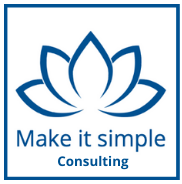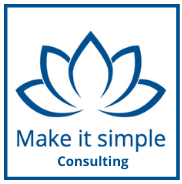In uncertain, complex and unpredictable situations, we know that the performance of a team depends on its ability to cooperate and maintain good interactions to produce and perform efficiently.
Our vision of Agility
We define agility as the ability to react and act with an open state of mind to internal or external transformation. Or, the ability to act quickly and efficiently in uncertain environments.
- Acting in an Agile manner is above all about systematically creating value for customers, employees and the company, with a specific mindset and using specific processes and tools, at the service of people and collective intelligence.
- Becoming agile means above all practicing agile working methods.
Very quickly create value for Business and a new way of working within teams. Remove silos, accelerate problem solving and innovation. Develop collective intelligence and entrepreneurship.
A methodology that allows Managers and teams to easily and very quickly:
- Face the UNKNOWN,
- Strengthen COLLABORATION,
- Accelerate INNOVATION,
- Maximize PRODUCTIVITY
- Promote CONNECTIVITY
Make it Simple Consulting® has developed a specific approach to Agility, based on a methodology, processes and tools that allow the implementation of an Agile business mindset and management.
An approach to Agility that has proven itself in many Business sectors facing different challenges and that can be acquired either through Training Programs or through the Team Workshops.
1) The Agile Ambassador Training Program
The goal of this highly interactive two-day training run in "workshop mode" is to ensure that teams learn by doing.
The training allows learning of the essential (state of mind, goals, modus operandi and key cooperative processes) and is structured around Agile workshops (using key Agile processes) as well as the debriefing of workshops and processes throughout.
Five major cooperative processes and tools are integrated into this training:
Problems and Opportunities Mapping, Business Challenges (the powerful questions), Co-creation, Co-Development and Co-decision.
Complete documentation of “how” to prepare and conduct Agile workshops is provided and explained during the training.
This training can be accompanied with a follow-up after completing the development of the practice (Agile Workshops) within the company.
Agile Project Management Training Programs (using SCRUM approaches) can also be implemented, after the Ambassador Training, in order to accelerate the cultural transformation of the company.
2) Agile Workshops
On-the-job training that allows you to acquire the mindset, tools and Agile methodologies by working directly on the challenges of the team and the company.
Workshops which are carried out during operational team times or during dedicated times and which will use the processes in order to:
- Strengthen collaboration,
- Accelerate creativity and innovation,
- Maximize productivity
- Promote connectivity within the team
This approach, which can be managed in half a day, allows an operational and rapid discovery of Agility and its impact on team efficiency.
Five types of workshops can be implemented:
- Problem Mapping
We have been trained since school to resolve problems jumping right away into finding solutions without trying to fully know or understand what is the problem we are asked to solve. Many times, "the solution is the problem"!
Many times, we project ourselves into the future hoping to immediately find the solution without really questioning the nature of the problem (what is the problem?), the way in which it is a problem (what are the impacts of this problem?) and for whom is it a problem!
In 30 minutes, with the Problem Mapping Process we will makes sure the team deals with the real problem or problems and we will focus on “here” and “now.”
- Opportunity Mapping
The way we have been educated in Problem Solving drives the way we work with opportunities. With the Opportunity Mapping Process, we ensure the Team explores the full potential of the situation and is able to rapidly identify Key Success Indicators (KSI).
- Co-creation
It is about moving from Problem Mapping to Problem Solving in a very disruptive way. Starting to use “How” instead of “Why”.
Sometimes, because of the complexity of the situation we have no idea about how to solve a problem. The Co-Creation Process activates collective intelligence and makes the teams identify Solution Intents in 30 minutes
- Co-Development
Sometimes, we have an idea to solve a problem but are not ready to make a decision and we need to receive feedback and proposals for improvement.
The Co-Development Process activates a team’s collective intelligence to enrich an idea, in a very structured, very efficient, and quick manner (30 to 45 minutes).
- Co-Decision
Very often we are lost in the decision-making process and we confuse clarification questions, opinions and objections and we come to debate and over complexify the decision-making process.
With the Co-Decision process we protect the decision-making process from “political games.” It does supports expression from all without debate and focuses on any impact that may arise from implementing the decision. It is a time-saving tool that helps team alignment without seeking consensus, compromise or full agreement.






